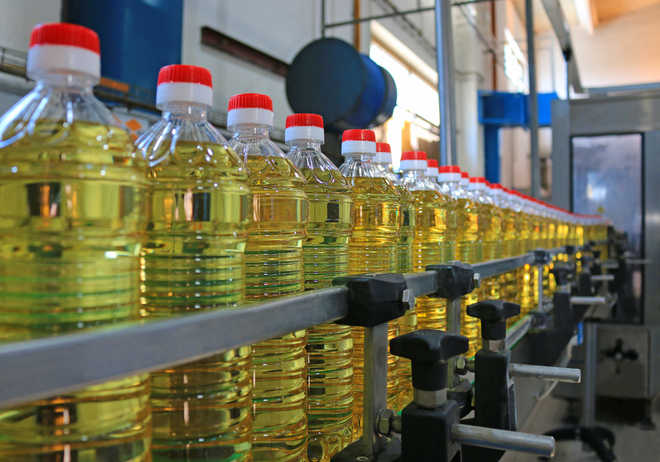
Quality check: Packaged oil is a safe bet
Pushpa Girimaji
I am told that there is now a law against the sale of edible oil that is not pre-packed. Is this true? However, I find many oil retailers selling unpacked edible oil. If there is a law, why is it not being enforced?
To answer your first question, this is not a new law. The government banned the sale of edible oil in loose form, soon after one of the worst epidemics of dropsy affected as many as 3,000 people in Delhi and led to 60 deaths, following large-scale adulteration of mustard oil with argemone oil, in 1998. Argemone oil, extracted from the seeds of argemone that resembles mustard seeds, is so toxic that even short-term consumption leads to severe gastro-intestinal disorders. Swelling and paralysis of the limbs, glaucoma and cardiac arrest are some of the other symptoms. The adulteration of the oil was so widespread during that year that not just Delhi, but several other states had to temporarily stop the sale of mustard oil. Subsequently, every container of oil had to carry a declaration that it was free from argemone oil.
The prohibition of sale of loose oil was incorporated under the Prevention of Food Adulteration Act, which governed the safety of food at that time. Subsequently, when the Food Safety and Standards Act replaced the PFA Act, it was incorporated in the new law. Thus, the Food Safety and Standards (Prohibition and Restrictions on sales) Regulations 2011 prohibits the sale of loose oil. Now despite the prohibition, you find consumers buying edible oil sold without packaging because: a) state enforcement agencies have not been enforcing the ban stringently; b) They have also not bothered to really educate and warn consumers about the dangers of buying edible oil without packaging. There’s another problem here. A large percentage of daily wage labourers and the rural poor, who cannot afford to buy edible oil sold in packs of one litre or more, buy small quantities. Obviously, they are without packaging. The quantity of loose oil sold and bought can be gauged from a study done in 2009 on the edible oil marketing in Tamil Nadu, which showed that 13.34 per cent of oil mills sold edible oily only in loose form, while 18.33 per cent sold both in packets and loose. The rest, 68.33 per cent, sold only in packed form.
Could oil sold loose be adulterated?
Such oil could be sub-standard, rancid and outdated. They could be adulterated with cheaper oils or even highly toxic substances like argemone oil. And without packaging, batch number, or FSSAI licence number, you cannot even trace the source of the oil in case of a problem.
And there is enough evidence of such adulteration of oil sold loose. For example, the epidemic dropsy incidents in the districts of Gwalior in 2000, Kannauj in 2002, Lucknow in 2005, Panchmahal and Dungarpur in 2012 bear testimony to it. More recently, Ahmedabad-based Consumer Education and Research Centre tested 15 samples of loose groundnut oil as per FSSAI standards and found that five out of 15 samples were adulterated with palmolein, while seven with cottonseed oil. Nine samples were found to be rancid and failed the test for freshness. There was dirt, sediments and, in one sample, even insects. As cottonseed oil and palmolein are far cheaper, traders find it highly profitable to adulterate costlier oils with them. But for consumers, such adulteration not only leads to financial loss, but also loss of health because palmolein, for example, is not a healthy choice of fat.
Similar tests on 1,015 samples of various oils collected from 15 states by Consumer Voice, a Delhi-based voluntary organisation, found that nearly 85 per cent of coconut oil, 74.1 per cent of cottonseed oil, 74 per cent of sesame oil and 72 per cent of mustard oil samples failed the quality tests.
It’s time the state governments enforced the law and ensured that the safety and health of their people are not compromised. The Food Safety and Standards Authority is, in fact, pushing for smaller packages. In the recent times, a number of companies have started bringing out small pouches. However, in order to wean the poor away from loose oil and encourage purchase of smaller pouches, their price should match that of loose oil. It is also absolutely essential to educate them on the dangers of loose oil.



























